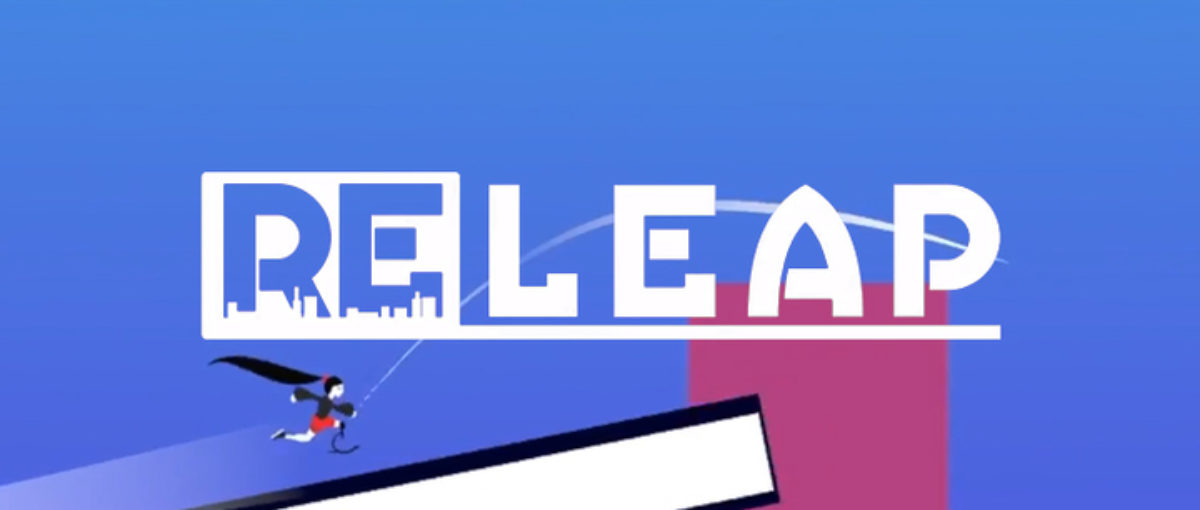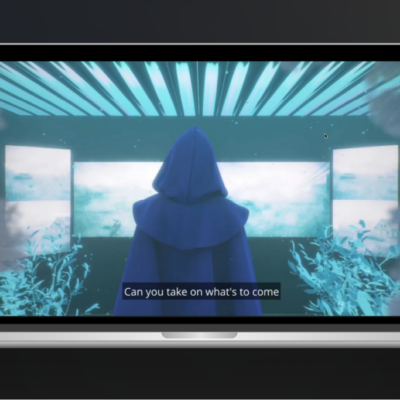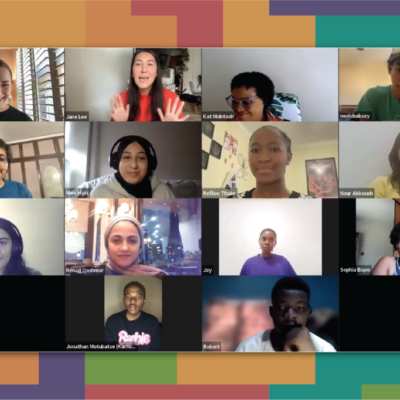
Student Game Developers Win for Compassion in Accessibility
In early June, I was fortunate enough to be a guest speaker at the Gotland Games Conference (GGC) in Visby, Sweden. The GGC is an annual festival at Uppsala University, where the students present and demo their game projects and compete for awards, and where speakers deliver lectures on a yearly theme. I was invited this year because the theme was empathy, something that Uppsala folks saw me speak about at the Game Developers Conference (GDC) earlier in the year.
Gotland is an island in the middle of the Baltic Sea, equidistant from mainland Sweden, Denmark, and Russia. It's a location that might have been suggested by the History Channel television show, "Vikings," with a wall that's over a thousand years old, rocky cliffs, and steep hillsides. In the village of Visby, where the university is, narrow cobbled streets twist around old world buildings, modern buildings, and centuries-old ruins alike in a labyrinthine manner. It's a popular vacation spot for Swedes, where everyone walks everywhere or rides bicycles.

Visby, Sweden
This kind of atmosphere is delightful, quaint, very active, and sustainable, but can make life challenging for people like myself who have rheumatoid arthritis, an autoimmune condition where my body declares war on itself in response to weather changes, too much stress, or too much physical activity. Imagine yourself with the flu...the fever, body aches, and exhaustion. Now, imagine that you feel this way every time it rains, or you travel from one temperature into another, or you're stressed out, or you've walked half a mile. It's a constant trade-off about your energy and pain levels, wondering things like, "If I walk uphill ten blocks to that restaurant tonight, will my mobility be affected tomorrow morning when I need to get to the university for my talk?" Gotland is lovely, but there aren't really any meaningful accommodations there for people with mobility issues, so I had to think extra hard about the tradeoffs while I was there.
My first trip to Gotland was in 2013, when I gave a talk about narrative as a tool for inclusiveness in games. Back then, I was particularly impressed by the creativity and game development abilities of Uppsala's students, which are as fine as the best I've seen around the world. They often make games with particularly creative kinds of controllers, and games with very physical components, like one displayed at GDC where you had to lie in a coffin with a cell phone and text with someone on the outside who would help you escape. This year was no exception. There was a game where your controller was on the underside of a couch cushion, so you had to play by scooting your body one way or another. There was a game where you had to physically shovel "coal" into a "coal chute" in order to make the train onscreen go. There was a game where you had to balance your weight, seesaw style, on a shifting platform in order to engage in an onscreen battle between two elevators, suspended on cords. (Yeah. Fighting elevators. It was rad.)
As a speaker, I was also a juror for the awards, so was responsible for playing each of the games. With the games that had more physically driven controllers, I had to ask for someone to play the game for me so I could observe. (Too much physical activity would mean I couldn't walk back uphill to my hotel later, or would have significantly less energy and maybe have to miss an evening activity.) On my rounds, I found a game called ReLeap. It's a platformer in which an Asian girl with a prosthetic leg runs and jumps, and the activity is controlled by a floor bar for sliding and a handlebar that you pull back and then push forward to get her to jump.

The main character in ReLeap prepares to soar through the air.
I started to give this team my usual spiel about having a disability and asking if someone could play for me, and they surprised me by explaining that they had thought of this and had brought a regular controller so that people with a unique physical need could play. I can't explain how it felt — after having to disclose my disability to different teams all day, and having to judge only by observation — to have this team say, "We expected folks like you and considered a way to let you play, too." I got kind of teary about it, actually. They were the only team with a more physical kind of controller who offered me a way to play for myself rather than having to just watch.
As I spoke to this team about their game, I realized that their sensitivity and compassion went even further than I thought. Most times when you see an amputee in a video game, the prosthetic is used as a weapon (Bayonetta), or the disability becomes "compensated for" by a superpower (X-Men), or the amputation is used as backstory for why the character is tough (several Overwatch characters). This team, on the other hand, didn't even mention the main character's prosthetic leg until they were asked about it directly. Watching the animations closely, you'll see that the girl only ever jumps from her human leg, not her prosthetic one. We aren't given any backstory or any reason for the prosthetic, we are simply invited to accept that this is the character's reality.
It was for these reasons that, when the jury met to discuss who should win the awards, I nominated ReLeap for "The Woke Award," the award for games that were compelling examples of social justice, or meaningful representations of race and gender issues. The jury thought initially that maybe it wouldn't give the award this year, as no games fit this exact definition. I disagreed, which was difficult for me because it meant sharing my disability with the rest of the jury during my explanation, when I have kept that information pretty close to the vest after my diagnosis last year. I made my points explaining that I was aware that my reasons are highly personal, and I would not think anything less of those who didn't support my opinion, and wouldn't take it personally.
I explained that not only did the ReLeap team go out of their way to represent a character with a disability, but they went about it in an incredibly sensitive and respectful way. Representation is important, but doing it correctly and well is equally so. In the more meta sense, they were the only team to have considered, "What happens when a player with a disability wants to play my game that showcases a character with a disability?" The controller wasn't the only option that took this into consideration, explained that team's faculty advisor — the special apparatus they'd built was also wheelchair accessible.
A conversation ensued among the judges about what "woke" really means, and whether that term is exclusive to race, gender and socioeconomics, or whether it could also apply to any type of situation where a minority (in this case, people with disabilities) are represented truly and well. The various points I made were supported by the jury, and someone made the additional point that this game was special because it caused the jury to reexamine our own definition of what "woke" means, which in itself is what a game described as "woke" should do: start conversations and expand our understanding. I was pleased to present the ReLeap team with The Woke Award at GGC, and while doing so, told my story and shared about my disability publicly for the first time.
Since the conference, I alerted my contacts at AbleGamers and the Microsoft Accessibility Lab about ReLeap, and also brought it to the attention of Ottobock, a manufacturer of prosthetics (some worn by athletes at the Special Olympics). I hope this group of first-year Swedish students can enjoy additional success and attention with this incredibly beautiful and respectfully developed game. For me, it was an excellent example of something I'm noticing more and more as I interact with game developers around the world through my work with iThrive: we are seeing a new generation of developers who want to make compelling, meaningful experiences that are inclusive and which build in empathy and awareness at every level...developers who think about how they can reach a larger number of players simply by remembering to ask the question, "How can they play, too?"

